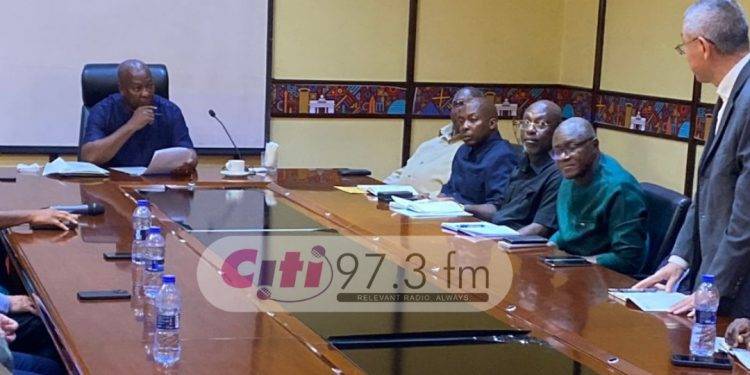In a bid to prevent a potential energy crisis, President John Dramani Mahama held an emergency meeting with Independent Power Producers (IPPs) on January 13, 2025. The discussions focused on resolving the financial challenges facing Ghana’s energy sector, particularly the government’s debt to the IPPs, which has ballooned to an alarming $1.2 billion as of October 2024.
The meeting, seen as a critical intervention, underscored the urgency of addressing the power sector's difficulties amidst growing fears of production shutdowns by the IPPs.
Mounting Financial Strain
Ghana’s energy sector has faced persistent financial difficulties, with unpaid arrears to IPPs posing a significant threat to the country’s electricity supply. Over the years, these power producers have played a crucial role in augmenting the national grid, yet their operations are increasingly strained by the government’s inability to settle outstanding debts.
The $1.2 billion debt, accumulated over several months, has put immense pressure on the IPPs, many of whom have warned of an impending halt in power production. Such a move could plunge the nation into a severe energy crisis, affecting businesses, households, and the economy at large.
Repeated Warnings from IPPs
Several IPPs have issued multiple public warnings, highlighting the dire consequences of delayed payments. Some have threatened to shut down their plants entirely if immediate steps are not taken to clear the arrears.
“The situation has reached a breaking point,†stated a representative of one of the leading IPPs. “We cannot continue to operate under these conditions. The government must act swiftly to ensure we are paid for the power we supply.â€
These warnings have amplified fears of widespread power outages, reminiscent of the severe energy crises Ghana experienced in the past.
The Role of WAPCo
Adding to the tension, the West African Gas Pipeline Company (WAPCo), a key player in the region's energy supply chain, recently announced plans to shut down its operations for scheduled maintenance. WAPCo supplies natural gas to many of Ghana’s power plants, and its shutdown would significantly impact the country's energy production.
The announcement heightened concerns about potential power shortages. However, in a move that provided temporary relief, WAPCo postponed the maintenance shutdown by two weeks, offering a brief window for the government to address the situation.
President Mahama’s Intervention
Recognizing the gravity of the situation, President Mahama’s meeting with the IPPs was aimed at finding a collaborative solution to the financial impasse. During the discussions, the President acknowledged the critical role of the IPPs in sustaining Ghana’s energy needs and assured them of his administration’s commitment to resolving the debt crisis.
“We are fully aware of the challenges you are facing, and we are committed to working together to find lasting solutions,†Mahama reportedly told the IPPs during the meeting. “The government values your contribution to our energy sector, and we will do everything possible to ensure your operations continue uninterrupted.â€
While details of the meeting were not fully disclosed, sources close to the discussions revealed that the parties explored various options, including restructuring payment plans and securing additional funding to address the arrears.
Challenges Ahead
Despite the postponement of WAPCo’s maintenance shutdown and President Mahama’s assurances, significant challenges remain in averting a full-blown energy crisis. The financial health of Ghana’s energy sector has been a longstanding issue, compounded by inefficiencies, revenue leakages, and rising demand for electricity.
Energy analysts have stressed the need for comprehensive reforms to address these underlying issues. “The current crisis is a symptom of deeper structural problems in the sector,†said Kwame Osei, an energy expert. “We need to look beyond short-term fixes and focus on long-term solutions that ensure sustainability and efficiency.â€
Possible Solutions
To address the immediate crisis and prevent future occurrences, stakeholders have proposed several measures, including:
-
Debt Restructuring: Establishing a structured repayment plan for outstanding debts to IPPs could help restore confidence and ensure continued power supply.
-
Improving Revenue Collection: Enhancing efficiency in billing and revenue collection systems, particularly through the adoption of advanced metering technologies, can reduce revenue leakages.
-
Diversifying Energy Sources: Investing in renewable energy sources, such as solar and wind, could reduce dependence on expensive thermal power and provide a more sustainable energy mix.
-
Public-Private Partnerships: Encouraging private sector investment in the energy sector can inject much-needed capital and expertise, easing the burden on the government.
-
Policy and Regulatory Reforms: Strengthening policy frameworks and regulatory oversight is essential to address inefficiencies and foster a more competitive energy market.
Public Reaction
The developments have sparked widespread concern among Ghanaians, many of whom have expressed fears of another round of debilitating power outages. Social media platforms have been abuzz with calls for urgent action, with citizens urging the government to prioritize the energy sector's challenges.
“It’s frustrating to see the same issues recurring year after year,†said Akosua Mensah, a business owner in Accra. “We need sustainable solutions, not just temporary fixes.â€
Looking Ahead
As Ghana navigates this critical juncture in its energy sector, the focus remains on the government’s ability to implement meaningful reforms and secure the necessary resources to address the current crisis. President Mahama’s meeting with the IPPs is a step in the right direction, but its success will depend on the actions taken in the coming weeks.
The energy sector’s challenges are a reminder of the importance of proactive planning and robust financial management. For now, the postponement of WAPCo’s maintenance shutdown provides a small reprieve, but the clock is ticking for Ghana to find lasting solutions to its energy woes.
The road ahead is fraught with challenges, but with strong leadership and stakeholder collaboration, Ghana can overcome this crisis and build a more resilient energy future.




No comments yet
Be the first to share your thoughts!